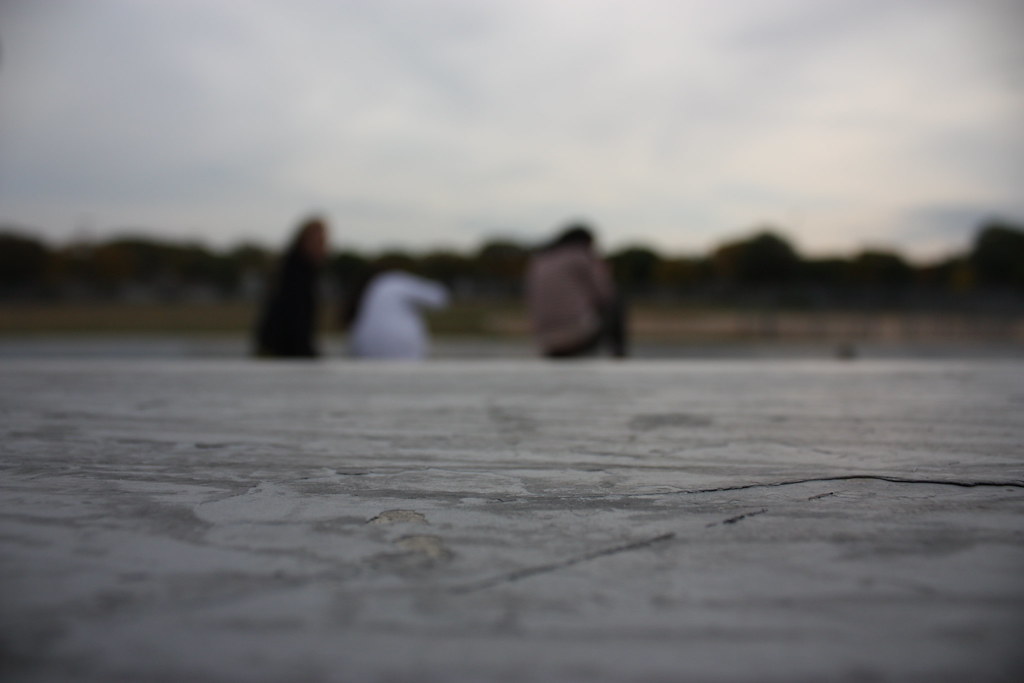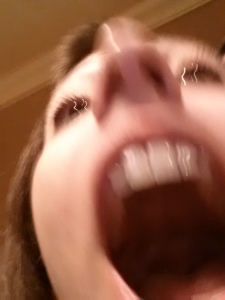
I have a longstanding fascination with adaptations.
When I was younger, instead of allowing myself to watch the utterly forbidden R-rated movies I longed to see, like Never Let Me Go, High Fidelity, and Girl, Interrupted, I would buy the novel and enjoy the R-rated material in private, because thankfully books come without ratings, and my parents, unless they dropped everything and read along with me, had no idea what sort of smut I was shoveling into my brain.
Hypocritical, yes, but one does what one must under oppressive regimes to answer burning questions about the world.
Something happens though, when I finally get around to watching the movie adaptations of some of my most beloved books. I often end up disappointed with the results. And I’m not sure if it has anything having to do with the quality of any of it or is due simply to the order in which they were consumed. Are these books actually so much better than their movie adaptations, or do I love them more because I happened to experience them first, like an imprinting, attaching my sentiments to products of my imagination rather than of casting directors and set designers?
(Then of course sometimes the movie is better–like in the case of Forrest Gump, The Princess Bride, and The Shawshank Redemption–but these are movies I saw first, so I don’t know if I just imprinted on the first format I experienced or if the written versions really are sub-par. It probably matters that these three movies are all critically acclaimed and add major elements that were missing from the original written versions. I’ve probably just answered my question.)
But the question of which is better, movies or books is an old one. It probably doesn’t have an answer, but I feel I’m pretty close when I say neither, they’re different media. When I wonder about this, I’m not wondering so much about quality, but rather my age-old obsession with reader/viewer experience, and what circumstances must be in place and what criteria met in order to create a perfect bond between a work of art and its consumer.
Bearing all this in mind, let’s tackle my recent viewing of Desiree Akhavan’s and Cecilia Frugiuele’s The Miseducation of Cameron Post, starring Chloë Grace Moretz, Sasha Lane, and Forrest Goodluck.
First off, four things that get in the way of me liking this movie:
- I finished the book on Friday and watched the movie the following Monday
- No 90-minute movie could ever convey the same depth as 143k words of prose
- The Montana setting, a major part of what I love about the book, is completely absent from the movie
- I was raised in a homophobic Christian cult, albeit without conversion therapy camps, giving me a more nuanced perspective on the subject than this movie presents. (For a quick look at what gay Jehovah’s Witnesses are taught about their sexuality, check out this excerpt from the book given to every teenager: https://www.jw.org/en/bible-teachings/teenagers/ask/pressure-to-be-gay/ )
(Spoilers? Definitely spoilers.)
This movie starts off great. In the silence stretching behind the beginning title cards, I tried to envision the first sounds I would hear: the slosh of water of Cameron’s breaststroke across Lake Scanlan, the pop of firecrackers in the summer, an early-nineties alternative track, maybe even Cameron herself in voice-over, typical of book adaptations. I was pleased to find us jumping right into the meat of the problem: the reassuring voice of a pastor conducting a teen bible study group, complete with awkward close-ups of bibles and captive faces. We’re presented with the concept that teenagers are at an age where they’re especially vulnerable to evil. At hearing this, Cameron sighs anxiously and looks away. “What feels like fun is actually the enemy, and that enemy is closing the noose around your neck,” her pastor says over shots of her and an unnamed girl riding bikes to her house, checking to make sure they’re alone, and making out in her room. Next the girls get ready for prom, revealing Cameron’s discomfort in being dolled-up with lipstick and blush, posing with her boyfriend for photos, being told she’s beautiful. The girls find themselves in the back of a car, smoking pot and making out again, hands in each other’s panties. Cameron’s boyfriend catches them, and next thing we know, she’s off to God’s Promise Camp.
It’s an effective beginning. Trouble is, I don’t know who Cameron is beyond a girl who likes girls. I don’t know how she feels about her bible education, her relationship with the aunt who sent her away, with her girlfriend or her boyfriend, or anything really. I hoped I’d get a better sense of her personality as the movie progressed, but mostly all she does is react. She arrives fully-formed in her convictions that she did nothing wrong, and at end leaves no different. And even though I agree wholeheartedly that she did nothing wrong, that doesn’t mean I want to watch an entire movie about that non-revelation.
Other characters are better drawn. We get a real sense of their personality, their fears and conflicts. Cameron’s conflict is that she’s stuck in this backwards camp and wants to leave, so she does, with little apparent difficulty. She has nothing about herself that needs examining, which is fine except that this is all set up as a coming of age story. Maybe it isn’t, and I was just expecting that from the source material. I get the feeling, though, that the filmmakers saw the conversion camp as the most compelling element of the story and cut out everything that didn’t support that throughline.
That includes important characterization for the main character. The book provides a strong source of conflict for Cameron. The same day that she first kisses a girl, her parents die in a freak accident, and her first thought upon learning this is “Thank God they won’t have to find out about me.” The rest of the book shows her journey of acceptance, not just of herself but of her parents’ deaths. When she finally leaves God’s Promise, it’s to visit the location of their accident and let them go, looking forward to a future where she doesn’t have to feel the weight of her own guilt upon her. It’s a testament to Cameron’s strength that she goes to conversion therapy camp and there learns acceptance, despite the harmful rhetoric of sin and self-destruction she’s taught.
From what I can tell, movie Cameron enters the camp already in possession of herself. And on the one hand, I like that. It’s an interesting angle to explore, but the trouble is the rest of the story doesn’t support it. I think there’s a story out there about the girl who stays strong despite a system designed to tear her down, and I want to read it, but Cameron Post is not structured that way. Without the arc of change for the main character, there’s not enough to propel the plot further. In lack of any other source of propulsion, it becomes dull, leaving me unfulfilled at the end instead of enlightened.
The Atlantic review acknowledges this quality but spins it into praise:
Even though its running time is short, at 90 minutes, The Miseducation of Cameron Post does drag simply because it’s so much about inertia. The camp is trying to change Cameron, but the assuredness of Moretz’s performance suggests there’s no possibility of that. Akhavan’s script (co-written with Cecilia Frugiuele) commendably avoids melodramatic twists or explosive, expository arguments, though it does mean that the film drifts to an ending more than anything else. Akhavan’s confident move, in the end, is that she can tell a story of a person finding their identity without depicting a transformation. This is a film about Cameron’s core personhood, and how it stands up to concentrated efforts to transform it, and it’s told with quiet steeliness and grace.
David Sims, The Atlantic, AUG 1, 2018
One person’s quiet steeliness is another person’s tedious frustration, I guess.
All in all, I found the movie watchable. There were long shots I wasn’t sure conveyed anything other than the awkward atmosphere of the camp, but it’s generally well-edited and clings tightly to its central premise, that conversion camps suck and aren’t worth anyone’s time.
To which I say, well duh.
I guess I was just looking for a little bit more.
Do you know of any books that don’t hold a candle to their movie adaptations, or vice versa? Let me know in the comments!















